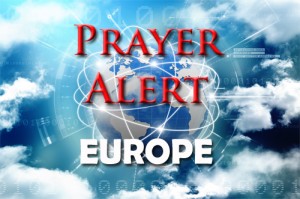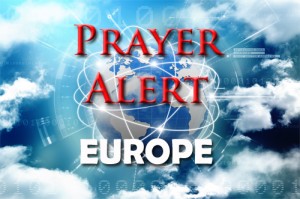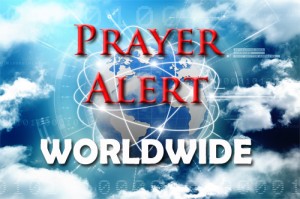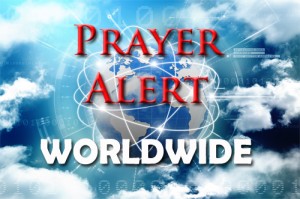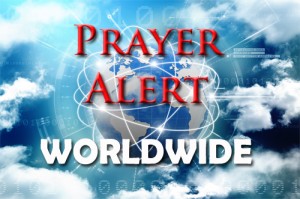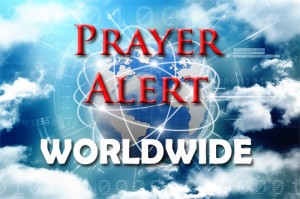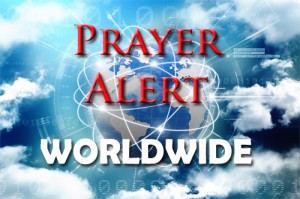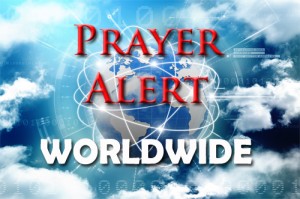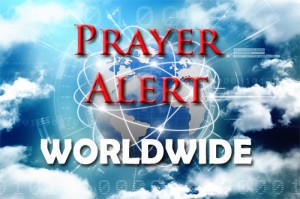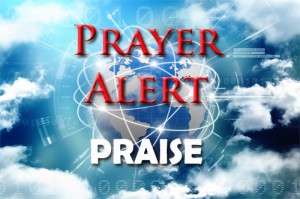
David Fletcher
David Fletcher is Prayer Alert’s Editor.
He is part of a voluntary team who research, proof-read and publish Prayer Alert each week.
If you would like to make a donation towards our running costs, please click here.
In what will be seen as a kick in the teeth to Jean-Claude Juncker, the European Commission president, Emmanuel Macron insisted that the EU should set goals for the next ten years and enforce treaty changes, or risk other member states following Brexit. The French president urged ‘new ambition’, or the Brussels bloc would face the ‘dismantling of Europe’. His comments followed Mr Juncker’s state of the union speech, which included his master plan for greater integration without treaty change. Speaking in New York, Mr Macron warned of difficult months and years ahead for the bloc if it could not shake off its image of overbearing bureaucracy; he said that other countries which are not comfortable with this will leave. Juncker had called for EU integration in the face of rising populism and elections in Italy, Sweden, Hungary, and the Czech Republic, where Eurosceptic parties are gaining momentum.
On 21 September, the day before Theresa May delivers her first major Brexit speech in Florence, she met with her Cabinet to discuss her terms for Brexit. The last time she addressed the EU was in January, at Lancaster House, when she set out her original vision for Britain outside the EU. Now, with negotiations deadlocked over the ‘Brexit bill’ and the role of the EU courts, Europe is looking for a major policy intervention. Boris Johnson says the media is talking 'nonsense' about MPs having split allegiances while he and Philip Hammond, at opposite ends of the soft/hard Brexit debate, attempt to present a choreographed show of unity. However, some believe Friday's speech will not generate 'an immediate breakthrough' in Brexit talks.
Rescue workers, backed by an army of untrained volunteers, are still searching for survivors buried under mounds of rubble in Mexico City. The death toll from the magnitude 7 earthquake, on 19 September, has reached 237 and is expected to rise. 44 buildings collapsed completely, and thousands are damaged and unstable, in the sprawling city built on a drained lakebed. As rescuers work against the clock, there has been an outpouring of civic generosity. Thousands of people donated time and medicines, food and water, blankets and basic supplies, to help relief efforts. Restaurants delivered food to shelters where thousands of people were forced to seek refuge after their homes were damaged. But there is concern about the need to rely on civilian volunteers and donations, and the slow arrival of government rescue services to some poorer neighbourhoods. Many questions about building regulations resurfaced as rescue efforts continue. See the next article.
19 September was the 32nd anniversary of a hiuge earthquake in Mexico which resulted in thousands of deaths and many large buildings destroyed. This week’s quake demolished old buildings and less solidly-constructed new buildings. The cure for earthquake devastation is well known: fix the old buildings and improve construction methods for new ones. A complex and expensive decision, but necessary as Mexico City is notoriously vulnerable to earthquakes due to very soft and wet ground underneath. This amplifies the shaking, making the ground like jelly and prone to liquefaction. There have been 34 earthquakes bigger than magnitude 7 within 300 miles of Mexico City since 1900. There is clearly more work to do. Rodolfo Soriano Nuñez, a sociologist and independent public policy analyst, said that government new building codes are not working. ‘We see new buildings have collapsed while older ones have survived.’
Dominica’s prime minister said, ‘We have lost all that money can buy’ after Hurricane Maria made landfall there on 19 September. Two days later rescue teams were struggling to reach the first victims stranded without power, running water or communications. Sadly, Maria moved along a similar track to Irma, the hurricane that devastated areas two weeks earlier. The military and police on the British Virgin Islands switched from focusing on recovery and cleanup after Irma to preparation for Maria, and started securing safe shelters for residents. Fortunately they were spared the full force. On 21 September, on its way to the Dominican Republic, Maria made landfall on Puerto Rico - the strongest hurricane there since 1928, when 300 people died. Over the coming weeks we can pray for the major relief efforts that will get under way to re-establish communication, restore electricity, and deliver medical aid, food, water, mattresses, clothes and other basic necessities.
Puerto Rico has been in a painful recession since 2006; previous governments dug it deeper into debt by borrowing to pay operating expenses, year after year. For the last two years, officials have been seeking assistance from Washington, testifying before stern congressional committees and even before the supreme court. In May, with creditors at its heels and its coffers depleted, it sought what is essentially bankruptcy relief in federal court, the first time in history that an American state or territory has taken this extraordinary measure, because of a $123 billion debt. Government workers are foregoing pension money; public health and infrastructure projects are not happening because of the crushing weight of debt. Now, Hurricane Maria has ripped through Puerto Rico, causing potentially thirty billion dollars in damage and threatening to exacerbate the population exodus that has helped push the island into bankruptcy. See
Rich Penkoski, a conservative Christian parent in West Virginia, voiced concern after Jackie Coffin, a middle school teacher, showed her class of 13-year-olds a suicide-prevention music video that featured hip hop music, two male high school students in bed together, and a sex toy. Penkoski told the Christian Post that this was not the suicide-prevention video approved by the school, while Coffin instructed students not to tell their parents that she had played it during class. Penkoski works as a leader of Warriors for Christ (WFC), who have launched a new Christian social media alternative to Facebook called SocialCross.org. So far nearly ten thousand users have joined the new platform. WFC also made headlines and received much backlash when they announced, ‘Anyone posting an LGBT rainbow flag emoji to the Facebook page will be banned by the page's administrators’.
A brother in Pakistan writes, ‘Former prime minister Nawaz Sharif continues to resist being thrown out of government for corruption. He denies the accusations, and is still trying to run the party. His children are bringing court cases and running for office, as is his wife. Pray that the country will not be torn apart. Shahid Khaqan Abbasi is now PM. He received two degrees from the USA and then worked there for several years before working in Saudi Arabia’s oil business. He was formerly minister of petroleum and natural resources. May his years in the US be the basis for good relationship between the two countries. Weeks after he came to office, President Trump delivered his Afghanistan policy, accusing Pakistan of supporting state terrorism. Pakistan has had more military and civilians killed by terrorists than any other country, and the nation took this as an affront.’
There is an expectation in Australia that once the result of the same-sex marriage postal vote is announced on 15 November the matter will be resolved once and for all. According to opinion polls a Yes vote looks likely, clearing the way for amendments to the Marriage Act. But there’s a twist in this long-running, angry issue (on 21 September a man head-butted former prime minister Tony Abbott as he campaigned for a No vote). Opposition leader Bill Shorten seeks to define marriage as ‘a union between two people’ meaning that all are eligible: heterosexuals, homosexuals and people of any other gender or sexuality. This could be immensely complicated.
On 18 March 2016 Prayer Alert readers prayed for the safety of an Indian priest who had been abducted when a Catholic care home for the frail and disabled in Aden was attacked. See On 12 September India’s foreign minister released a tweet that read, ‘I am happy to say that Father Tom has been rescued’. Last December he appeared in a video, begging for his life. Pope Francis appealed for his release, but nothing seemed to happen. The video confirmed he was in very poor health. He will now go to Rome, where he will get medical treatment.

